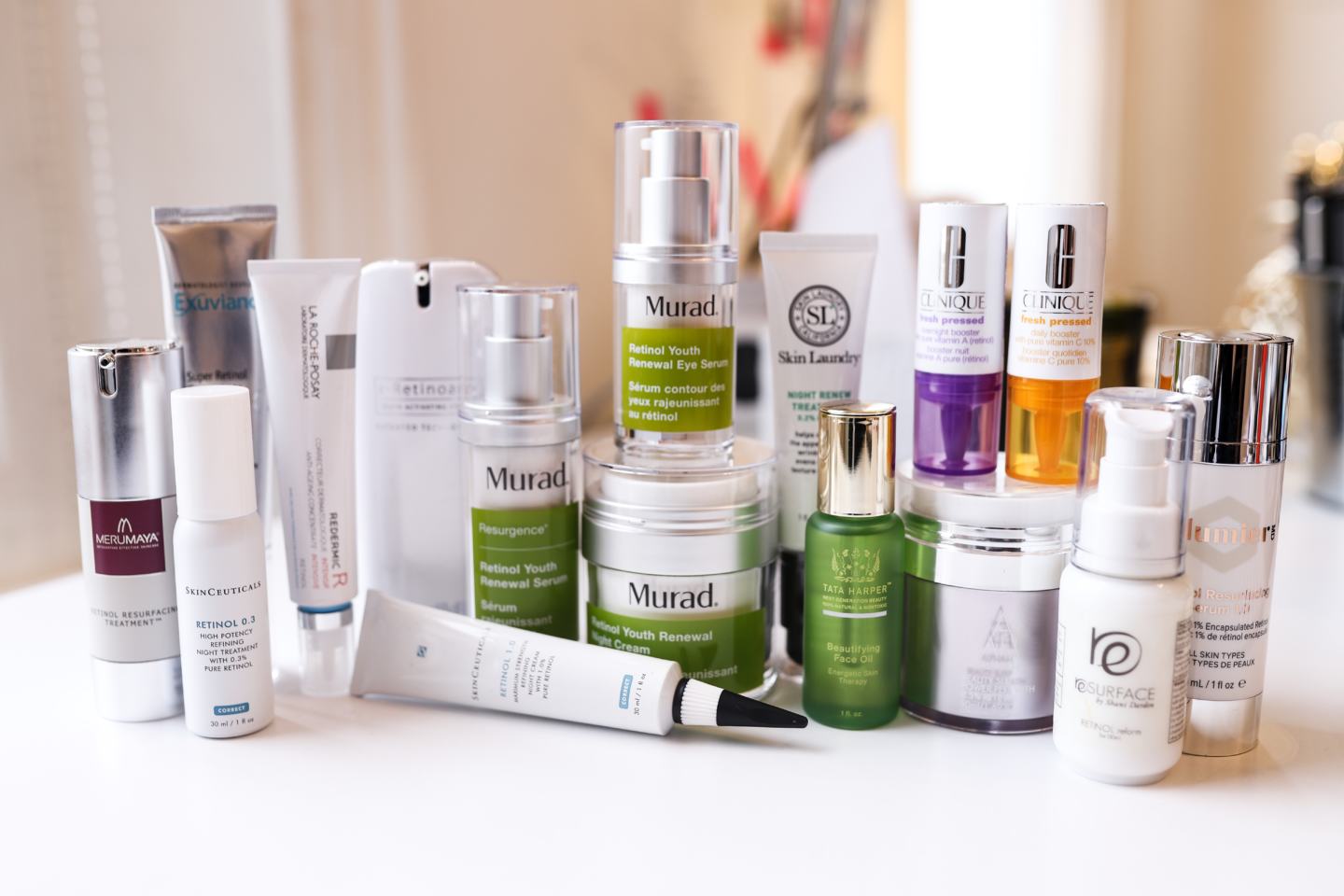
Following on from yesterday’s review (see the updated one here) and the inci listing that wasn’t very clear, I thought a quick post on the conversion of vitamin A, and what you’re actually looking for in an inci list, would be helpful.
Prescription* strength vitamin A is retinoic acid (also known as Tretinoin/Retin-A). This is the star of the show in terms of skin ‘care’. It has a long list of conditions/signs of ageing/skin problems/disorders that it is proven capable of either fixing entirely or massively helping. Originally (and still) used to treat acne, it quickly became obvious that there was such more to this wonder ingredient.
Retinoic acid is bioavailable to the skin. The difference between retinoic acid (Tretinoin/Retin-A) and retinol/retinaldehyde/retinol esters is that they need to be converted into retinoic acid by your skin at a cellular level in order to have the same effect.
Each one takes one further stage to convert, as per the table below, and each conversion weakens the strength/effect of the product, hence why a 1% retinol is still not as effective as a 0.025% retinoic acid but may prove more irritating:
retinoic acid/tretinoin/all-trans-retinoic acid (prescription only in the UK)
0.1%
0.05%
0.025%
^
retinaldehyde and hydroxypinacolone retinoate (granactive)
(retinaldehyde – one conversion – acts quickly, just not as quickly as the above)
(hydroxypinacolone retinoate is a retinoic acid ester – so it’s directly related to the Boss, but it’s not a direct descendant, more a cousin. Sometimes used in higher %s because it’s an ester and gentle)
(Given the choice, I would still pick retinaldehyde over HPR.)
^^
retinol
(two conversions – still works, takes a little longer to get you there)
1%
0.5%
0.3%
^^^
Retinol esters including :
retinol propionate
retinyl palmitate
(three conversions minimum – these all differ but there is evidence showing that palmitate is the weaker of the family, more of which in individual reviews)
There are other derivatives such as retinyl acetate and retinyl linoleate, but they are not as prevalent, so I’ll only mention them in the review of the actual product to save confusion.
Added to the above are adapalene – trade name Differin, and tazorac, trade name Tazarotene.
Differin, now OTC in the USA, is mainly used in the case of acne, but has its own proven benefits on signs of ageing on the skin and so is an easy pick if you are state-side and looking for something affordable, easy to access and try, that won’t break the bank or your skin. It’s also safe for pregnancy and not a problem in the sun. I recommend Differin to anyone that isn’t contraindicated. It’s a no-brainer.
Tazarotene is mainly prescribed for psoriasis and acne and is prescription only for a reason. It’s irritating and isn’t really used for cosmetic benefits, so if you are on that, keep talking to your doctor, I’m leaving it alone for the sake of ‘cosmetic’ reviews.
That’s it. The process is akin to coffee (I would have preferred a tea analogy but I sense coffee travels better) 🙂 :
double espresso
^
espresso
^^
cappuccino
^^^
latte
*It is possible to buy tretinoin over the counter in mainland Europe with no prescription needed. When I am talking about prescriptions I am always referring to the UK, my home turf. 🙂
**I will keep this as a moving document and update it as more ingredients come to market/are proven via clinical etc
Do not forget your SPF. Seek your physician’s advice if pregnant or breastfeeding.
This post is not sponsored. This post contains no affiliate links. I do not use affiliate links on products belonging to brands that I work with on a professional basis.
See my full disclaimer here: https://www.carolinehirons.com/page-about
The views expressed on this site are the author’s own and are provided for informational purposes only. The author makes no warranties about the suitability of any product or treatment referenced or reviewed here for any person other than herself and any reliance placed on these reviews or references by you is done so solely at your own risk. Nothing on this site shall be construed as providing dermatological, medical or other such advice and you are always advised to seek the advice of a suitable professional should you have any such concerns.